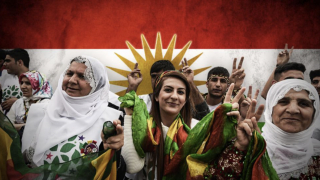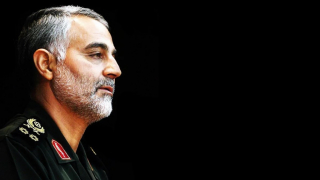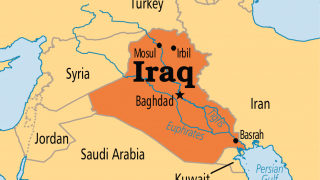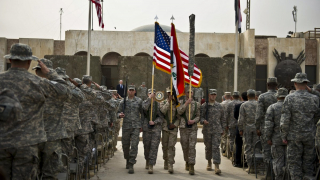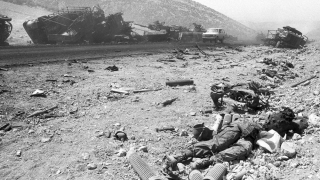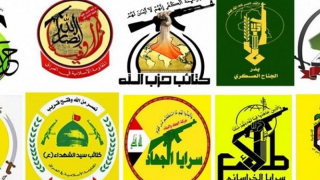The flame of Sadr's revolution
30.10.2022
The fire of the uprising has once again engulfed Iraq. After Muqtada Sadr was not allowed to form a government, his activists paralyzed the work of parliament, through peaceful demonstrations and strikes demanding that political opponents accept Sadr's leadership. Such an outcome was to be expected and it's not a matter of a dispute with the “coordination framework” for portfolios in the government or personal rejection of certain figures(Maliki), it's just that Iraqi society is tired of endless socio-political crises and even an influential part of Western elites recognizes that the quota system regime has finally exhausted itself.
Insisting on the long-awaited reforms, Muqtada is doing everything to avoid a civil war. His constant instructions to the masses show how Sadr is trying to nip in the bud the possibilities of chaos and provocations. This suggests that Muqtada carefully prepared for revolutionary actions. Another point is Sadr's diplomacy, where he tries to attract influential figures from the camp of opponents to the revolution, as examples, we can point to the invitation of the leader of the Fatah coalition, Hadi al-Ameri, to withdraw from the “coordination structure” and join the Sadridists. Similar dialogues are held with other parties. Sadr's goal is to isolate the ambitious Maliki* and his ilk, and create a powerful revolutionary alliance that will have to keep Iraq from internecine strife and form a strong government.
If in the past, Muqtada's movement was somewhat limited, now unexpected allies have appeared. One of the leading resistance factions associated with Iran, Harakat al–Abdal, announced support for Sadr. This is a truly unprecedented step by the faction from Al-Muqawama Al-Islamiya. Not one of the “pro-Iranian” resistance groups openly supported Muqtada Sadr, Harakar al-Abdal were the first to support the revolution. Of course, such a step took place in coordination with the IRGC. The support from one of the Islamic Resistance groups is another diplomatic victory of Muqtada. The willingness to engage in dialogue with all components of Iraqi society and even an alliance with some opponents demonstrates Sadr's openness to inclusiveness in his political movement. Moreover, this fact destroys the myth of Sadr's hostility to the resistance factions and Hashad al-Shaabi, because Muqtada demands organization and the expulsion of undisciplined elements, which, among other things, are accused of crimes against displaced persons of Sunni provinces.
Grand Ayatollah Qassem al-Tai supported Sadr's actions. An authoritative theologian and part-time veteran of jihad during the NATO occupation of Iraq, he became the first cleric with the rank of “Marja” who supported the revolutionary spirit of Muqtada. Such a message from the ayatollah testifies to large-scale changes in the minds of the clergy, because Iraq can no longer remain hostage to the silence of local religious authorities. Changes have long been overdue in all spheres of society.
It is also impossible not to mention one symbolic moment, Sadr made his first decrees on the organization of a popular gathering and subsequent demonstrations a few days after the visit of the head of the IRGC Ismail Kaani to Iraq, where he visited Islamic shrines. Experts note that Sadr's many political steps resemble the religious authorities in Iran.
In the history of Sadr's revolutionary campaign, it should be noted that the leader of the largest opposition movement showed tactical flexibility, Muqtada enlisted the support of Kadimi, which in a broad sense means the approval of the Saudis and the Emirates, such a step was dictated by the need to inspire confidence in the Autocracy of the Persian Gulf, so that they formally bet on Sadr as opposed to Maliki–Ameri and did not organize spontaneous protests, like Tishrin in 2019. Given that the UAE controls a large part of the apparatus of the special services and the Iraqi army, Sadr's temporary alliance with Karimi saved many lives among today's demonstrators. After all, the army and special forces have considerable experience in destroying protesters. The other side of the tactical alliance with the Gulfs is the autocrats' bet on Sadr to the detriment of the local “Shiite” liberals. That is, according to Muqtada's plan, his authority should overshadow any "secular-Shiite" political figure so that the Gulf monarchies do not have a chance in finding allies against Maliki and Ameri.
Briefly about the tasks of the Sadridist leader.
1 – Isolation of Sistani. The current crisis shows that Marja no longer affects the situation, while Sadr has gained the necessary political weight, in which his opinion is not just taken into account, but is also a kind of guideline for many opposition forces. Let me remind you that half a year ago, Sadr's representative, Sheikh Hatim al-Araji, called on Iraqis to accept the religious authority of Muqtada Sadr, and not Sistani.
2 – The destruction of the quota system, which gives a chance to rid Iraq of corruption and dependence on the oil lobby. The reform in terms of public administration will also have to prevent the separatists in the Sunni provinces from separating the local governorates from Iraq.
3 – Get rid of oil addiction. Last year, Sadr urged Iraqis to follow the experience of Egypt under Sisi's leadership in the plan. It is known that the junta is the leader of Africa in the production of renewable energy.
4 – The marginalization of radical nationalists from among the Iraqi Shiites, who mainly live in the south of the country. Muqtada Sadr has long been an icon of youth, where, among other things, the ideas of nationalism prevail. This fact cannot but annoy some politicians who, with the support of some clans, would like to ride the wave of opposition sentiments of local Iraqis. However, Sadr competently isolates the rioters and effectively leads the masses, preventing chaos. An illustrative example of Sadr's influence was that in relation to a number of members of the “Peace Brigade” who attacked the country's parliament, the head of the Sadridists excluded them from the movement and froze the activities of a number of politicians who supported the attacks.
5 – The new course of the country. Sadr's slogan “neither west nor east” means avoiding dependence on the United States and China. Thus, the leader of the Iraqi revolutionaries demonstrates his refusal to participate in the “new cold war”.
Summing up, we can point to the reaction of the West about what is happening in Iraq. The American edition of Foreign Policy compared Sadr with the legendary Khomeini. This is enough to understand what the imperialists are worried about. A new Islamic Revolution is coming, which will open the gates of transformation of the Arab region from the Arabian Peninsula and up to the Maghreb. The West knows about the inevitability of change and will definitely prepare the sticks in the wheels, but the train of change has gained the necessary speed to crush any obstacle.
* - contrary to the comments of many experts, Sadr's negative attitude towards Maliki is not based on personal hostility, but as a reaction to the likely dramatic consequences in the event of a new premiership of the leader of DAWA. The Zionists and Gulf regimes are waiting for the right moment to organize a separatist war in Anbar again, the presence of Maliki as head of Iraq will give an excuse to incite the rebel tribal leaders to a new uprising, as it was before. After that, such notorious organizations as Al-Qaeda of Iraq and ISIS appeared. Therefore, Sadr is trying to prevent a repeat of those events by blocking the figure of Maliki for the post of prime minister.
ISIS, Al-Qaeda of Iraq - banned in Russia.


